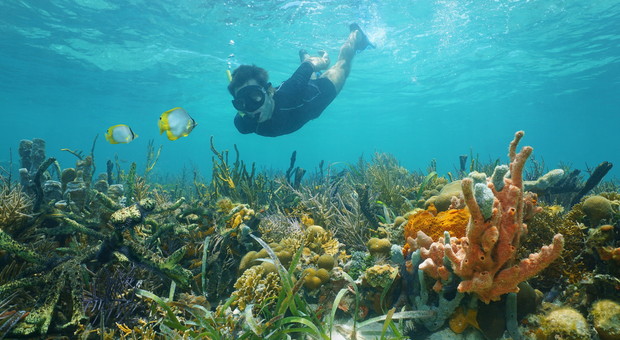BY MORTEN BUSCH
We mostly associate the development of antibiotic resistance with herds of pigs or hospitals. However, the genes that create the resistance originate in many diverse habitats in which there are microorganisms – including the world’s oceans and seas, which have large and complex microbial communities. A new international research article with Danish participation describes this.
The research published in Frontiers in Microbiology focuses on microbial communities in marine sponges that otherwise are normally hidden from humans. Sponges are animals but have no cell membranes, tissue or organs, and there are about 10,000 types. Their bodies are configured to maximize the flow of water through the body. The sponges feed on the small marine particles and on the microorganisms with which they live in close symbiosis.
The microorganisms that live in the sponges are able to produce several antibiotic substances that can be used against bacteria. The production of these antibiotics also makes sponges an ideal place to search for antibiotic resistance. The researchers examined three types of sponges in the Mediterranean Sea for resistance genes: Aplysina aerophoba, Petrosia ficiformis and Corticium candelabrum.
The researchers initially looked for sponges based on gene sequences that are similar to known resistance genes and found 37 suitable genes that coded for resistance to 14 common antibiotics used by humans. The results suggest that microbial communities living in sponges may be a reservoir for many more previously undiscovered resistance genes.
Because resistance genes spread from organism to organism, the marine environment may thus potentially harbour an enormous reservoir of possible resistance genes that can cause problems for human health. The massive use of antibiotics for humans and animals in recent decades has led to the evolution of multidrug-resistant microorganisms, resulting in poorer options for treating bacterial infections. The microbes in marine sponges are naturally also a potential way of discovering new antibiotics – but that is a completely different story.
“Sponge microbiota are a reservoir of functional antibiotic resistance” has been published in Frontiers in Microbiology and was co-authored by researchers from the Novo Nordisk Foundation Center for Biosustainability, Technical University of Denmark.








